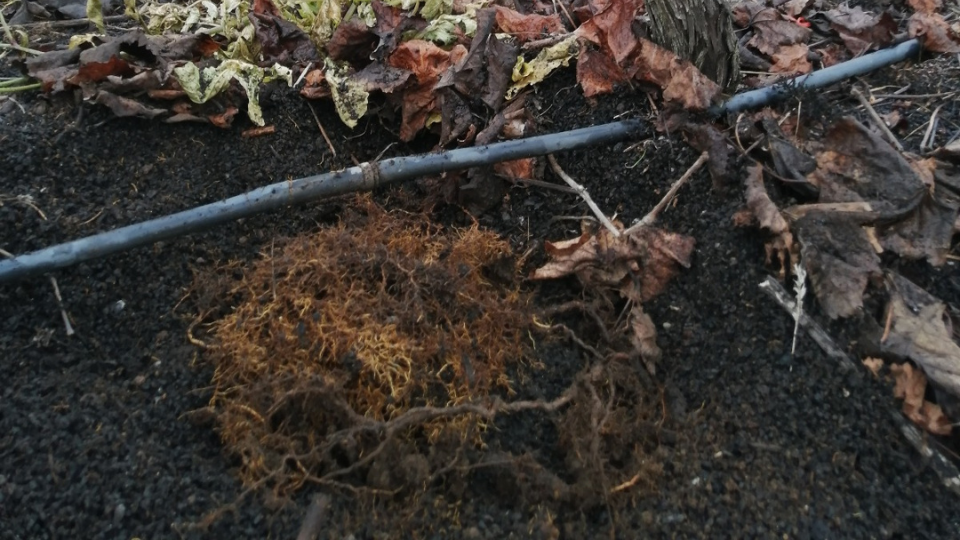- Innovation
- June 18th, 2024
Fungi could be allies of vineyards to face climate change
A study recently published in the Journal of Soil Science and Plant Nutrition, developed by Myconativa and the participation of our Research and Innovation Center, shows that mycorrhizal fungi increase vine tolerance to water stress scenarios.
A type of fungus could be the solution to the impact of climate change on vineyards. This is shown by a study led by Paula Aguilera, a leading researcher in the field of mycology applied to agriculture and founder of Myconativa, which was recently published in the Journal of Soil Science and Plant Nutrition. The research was conducted in conjunction with our Center for Research and Innovation (CRI).
The research, which was applied in our vineyards from the Coquimbo Region to the Maule Region, shows an association between the presence of arbuscular mycorrhizal fungi (AMF) and the plant’s increased ability to tolerate drought scenarios. AMF is a type of fungus that forms a symbiotic relationship – that is, interaction between two organisms – with plant roots, helping plants to absorb more water and nutrients from the soil, especially under conditions of scarcity.
Specifically, more than 94,000 AMF spores and 15 different species were identified in the 34 vineyards investigated, revealing a significant diversity that correlates with improved plant drought tolerance.
Paula Aguilera commented, “This work underscores the importance of understanding below-ground biodiversity as key to the sustainability of our viticulture. We are discovering how small organisms can have a big impact on the health and resilience of our vineyards”.
Felipe Gainza, CRI researcher, highlighted the collaboration between Myconativa and Viña Concha y Toro, because “it has allowed us not only to advance scientific knowledge, but also to apply these findings in a practical way in the field, improving the resilience of our vineyards in the face of climate change.”
Other entities that participated in the research are Universidad Católica de Temuco, Universidad Católica del Maule, Universidad de Chile, Universidad Santo Tomás and Vrije Universiteit Amsterdam, in the Netherlands.
For more information on this innovative study, access the full article at the following DOI link.



